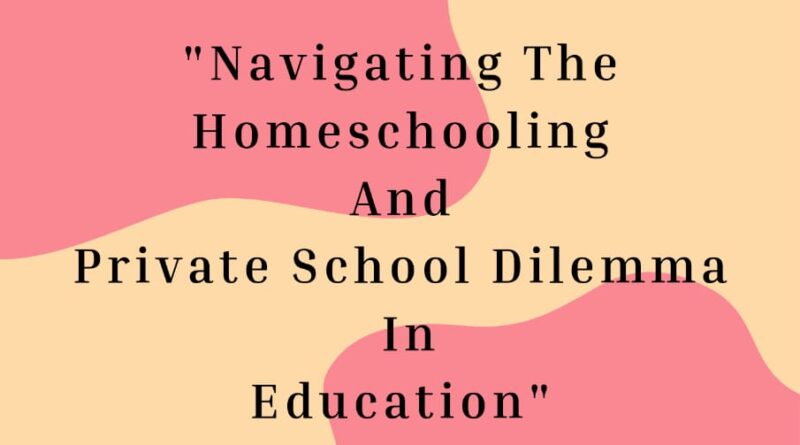“Balancing Acts: Navigating the Homeschooling and Private School Dilemma in Education”
In the ongoing discourse surrounding education, the comparative analysis between homeschooling and private schools has emerged as a nuanced and crucial discussion, with proponents and critics advocating for each approach based on distinctive educational philosophies and priorities.
Homeschooling, championed for its individualized approach, empowers parents to tailor the curriculum to the unique learning styles and interests of their children. Advocates argue that this personalized attention fosters a deeper understanding of the child’s academic strengths and weaknesses. The flexible nature of homeschooling allows students to progress at their own pace, exploring subjects in greater depth or taking additional time to grasp challenging concepts.
Moreover, the intimate student-teacher ratio in homeschooling environments facilitates a closer bond between educators and learners, potentially leading to a more profound impact on academic development. Critics, however, raise concerns about the potential lack of socialization opportunities in homeschooling, suggesting that the absence of interactions with peers could hinder the development of crucial interpersonal skills.
Conversely, private schools are renowned for their structured curriculum, experienced faculty, and robust extracurricular offerings. The emphasis on a well-rounded education extends beyond academics, providing students with opportunities for personal growth, character development, and exposure to diverse activities. The social environment in private schools is often considered a vital aspect of a child’s development, exposing them to a broader spectrum of interactions and fostering teamwork and social skills.
While private schools offer a comprehensive educational experience, they may lack the flexibility and customization that homeschooling provides. The rigid structure of private school curricula may not cater to every student’s learning pace or cater to specific academic interests. Additionally, the financial aspect of private schooling can be a significant factor for families, as tuition fees can be substantial.
Ultimately, the choice between homeschooling and private schools hinges on various factors, including individual preferences, learning styles, socialization needs, and parental involvement. Homeschooling appeals to those who prioritize flexibility, personalized learning, and close parental engagement, while private schools are favored for their structured environment, experienced faculty, and the comprehensive educational experience they offer.
In navigating this choice, families must weigh the pros and cons of each approach, considering the unique needs and priorities of their children. Whether opting for the personalized, flexible environment of homeschooling or the structured, holistic experience of private schools, the aim is to provide an education that equips students with the skills, knowledge, and values necessary for their future success





